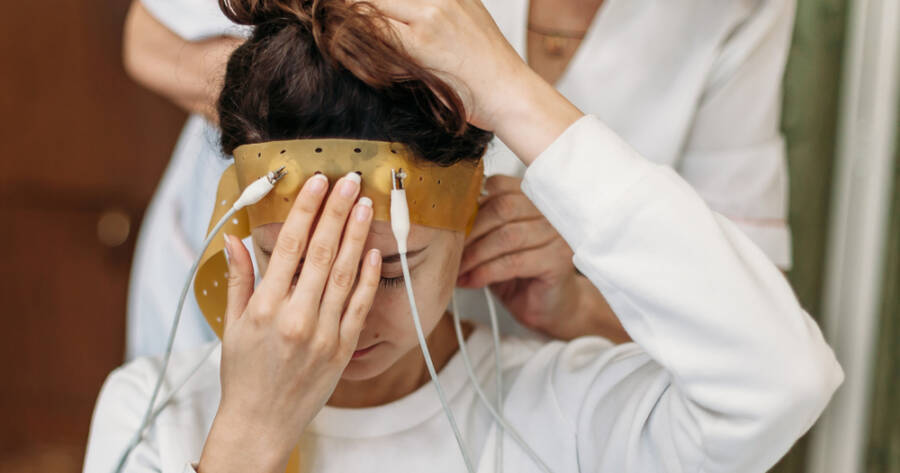Are you curious about how your sleep habits might contribute to groundbreaking research? Sleep clinical trials offer a unique opportunity to help advance medical science while earning extra income. These studies explore sleep disorders, patterns, and treatments, with participants playing a crucial role in the process. While results may vary, many individuals find the experience both enriching and financially rewarding. Read on to discover what these trials entail and whether they might be a good fit for you.
What Are Sleep Clinical Trials?
Sleep clinical trials are research studies designed to better understand sleep-related conditions and develop new treatments or interventions. Scientists may study participants who have specific sleep disorders, such as insomnia, sleep apnea, or narcolepsy. Alternatively, some trials focus on healthy individuals to compare sleep patterns and responses to various conditions or medications.
Typically conducted by research institutions, hospitals, or pharmaceutical companies, these trials are meticulously regulated to ensure participant safety. Before joining, participants receive detailed information about the study’s goals, procedures, and potential risks. Signing an informed consent form is required, reinforcing the commitment to ethical standards.
Who Can Participate in Sleep Trials?
Eligibility criteria vary from study to study, but there are general guidelines for participation. Researchers may seek individuals who:
- Have a diagnosed sleep disorder such as insomnia, restless leg syndrome, or hypersomnia.
- Are healthy sleepers without any chronic conditions, to serve as a control group.
- Meet specific demographic criteria, such as age, gender, or lifestyle factors like smoking habits.
Certain trials may exclude participants with ongoing health issues or those taking medications that might interfere with results. Always review the eligibility requirements carefully to ensure you’re a suitable candidate.
What to Expect During a Sleep Trial
Participating in a sleep study typically involves monitoring your sleep in a controlled environment, such as a sleep lab, or sometimes from the comfort of your home using wearable devices. Here’s a breakdown of what to expect:
1. Initial Screening
This phase includes questionnaires, interviews, and sometimes physical exams to determine eligibility. Researchers may also request a sleep diary or baseline data from wearable sleep trackers.
2. Sleep Monitoring
During lab-based studies, participants may spend several nights in a facility equipped with specialized equipment, such as EEG machines, to measure brain activity, heart rate, and breathing patterns. Home-based studies, on the other hand, might require participants to use devices like actigraphy watches or patches.
3. Follow-Ups
Many trials involve post-study follow-ups to track any changes over time or assess the long-term effectiveness of treatments. Participants may need to return for additional visits or complete online surveys.
Compensation varies depending on the study’s duration, complexity, and location. Payments can range from modest stipends to several thousand dollars for extensive trials.
Benefits of Participating in Sleep Clinical Trials
While financial compensation is a compelling reason to join, there are several additional benefits to participating:
1. Contributing to Medical Research
Your involvement could lead to breakthroughs in understanding and treating sleep disorders, potentially improving the quality of life for countless individuals.
2. Access to Cutting-Edge Technology
Participants often gain access to advanced diagnostic tools and treatments before they’re widely available.
3. Personalized Insights
Many studies provide participants with detailed feedback about their sleep health, which can be invaluable for improving personal sleep habits or identifying potential health concerns.
Risks and Considerations
It’s important to weigh potential risks before enrolling in a trial. Common concerns include:
- Discomfort from equipment: Sleep monitors, such as electrodes or straps, can feel intrusive or uncomfortable.
- Side effects: If the trial involves medication or new interventions, there may be side effects or unanticipated outcomes.
- Time commitment: Participating in a trial often requires significant time for overnight stays, follow-ups, or compliance with study protocols.
While risks are minimized through rigorous oversight, it’s essential to ask questions and thoroughly review the informed consent document to fully understand your commitment.
How to Find Sleep Clinical Trials
Several resources can help you identify trials:
1. Clinical Trial Registries
Websites like ClinicalTrials.gov provide comprehensive databases of ongoing studies, allowing you to search by location, condition, or keyword.
2. Sleep Centers and Universities
Reach out to local sleep clinics or university research departments, which often conduct their own studies and recruit from the community.
3. Patient Advocacy Groups
Organizations dedicated to sleep health, such as the National Sleep Foundation, frequently share information about new research opportunities.
When applying, be prepared to share medical history and undergo a screening process to confirm your eligibility.
Tips for Maximizing Your Experience
If you decide to participate, consider the following tips to make the most of your experience:
- Stay informed: Ask plenty of questions about the trial’s purpose, procedures, and potential risks.
- Be honest: Provide accurate information about your health and lifestyle to ensure reliable results.
- Plan ahead: Trials can be time-intensive, so plan your schedule accordingly to minimize disruptions.
- Follow protocols: Adhering to study guidelines is essential for the success of the research.
Is a Sleep Clinical Trial Right for You?
Participating in a sleep clinical trial can be a unique way to earn extra money, learn about your sleep habits, and contribute to medical science. However, it’s not a decision to take lightly.
Carefully evaluate the time commitment, potential risks, and personal benefits before signing up. If you’re intrigued, explore available studies and take the first step toward a fascinating and potentially rewarding experience.
Rest, Research, and Rewards
Sleep clinical trials provide a rare opportunity to merge personal benefits with societal impact. By participating, you’re not only supporting advancements in sleep science but also gaining insight into your own sleep health.
While the process requires careful consideration, the rewards—financial and otherwise—can be significant. If you’re ready to take the plunge, start by researching trials near you and prepare to embark on a journey that could change your perspective on sleep forever.
